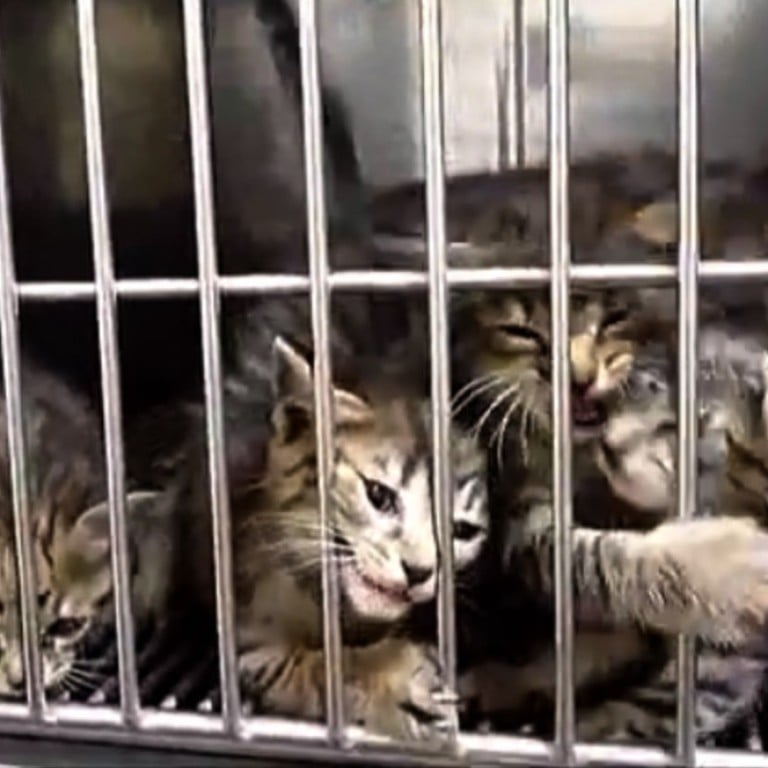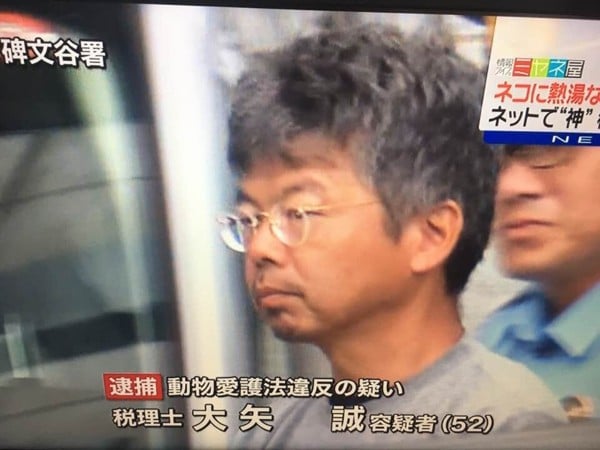
Why are Japanese torturing cats and posting the videos online?
As Japanese police record a spike in animal abuse, a proliferation of online videos depicting the torture of cats has activists demanding Tokyo tighten its laws
When Tokyo police eventually arrested Makoto Oya, a seemingly respectable tax counsellor from Saitama City, he attempted to justify pouring scalding water over stray cats and torturing them to death with a blowtorch.
“The excrement and urine of cats smells bad,” he told the officers who took him into custody. “They have sharp nails that are designed to injure. I did not realise that exterminating these sorts of harmful animals was a violation of the law.”
Oya, 52, was charged in August of last year with violating the Animal Protection Law. He is believed to have abused at least 13 stray cats in the eight months before he was arrested. Nine cats died, the rest were severely injured.
Chinese men stole pet cats to make ‘dragon and tiger soup’
Police were able to find him because he had recorded the torture sessions and uploaded the footage to an anonymous video-sharing site. Police tracked him down after a member of the public alerted them to the videos.
Animal-rights activists have now set their sights on convincing the government to outlaw the uploading of such cruel videos on the internet. They are also lobbying to increase punishments for anyone found guilty of intentionally causing harm or distress to animals.
Thanks in part to that pressure, a cross-party group of politicians is trying to bolster Japan’s animal-cruelty laws, and may introduce stronger legislation in coming months.
From the outset, prosecutors demanded a 22-month prison sentence for Oya on the grounds that he had found “immense joy in tormenting the cats”. Oya’s defence team called for a suspended prison term because he had suffered “social sanctions”, including losing his job and being ostracised by society.

The judge sided with the defence and Oya was given a suspended term, incensing animal lovers who say that while laws are in place to protect animals, they are rarely enforced. And when perpetrators are taken to court, they get off much too lightly.
“Anyone who works in animal welfare in Japan will tell you exactly the same thing – the laws are weak – and that is a problem. But the far bigger concern has to be that they are not enforced,” said Susan Roberts, founder of the Japan Cat Network.
“You see signs in parks, for example, threatening fines for anyone who abandons kittens, but you never hear of those fines being enforced,” she told This Week in Asia.
Roberts, who is originally from Michigan in the United States, says the majority of the cases she deals with involve abandoned animals. Through her network across the country she hears horrific tales of abuse. In Osaka recently, a dismembered cat was found in a public park.
Animal cruelty in Hong Kong must be tackled with education
She also warns that children who start out abusing animals are predisposed to violence later in life.
In June 1997, police in the city of Kobe arrested Shinichiro Azuma, a 14-year-old boy who wrote taunting letters to the authorities after killing a 10-year-old boy and an 11-year-old girl. Azuma, who served seven years in prison, was also linked to the killing and mutilation of about 200 cats before he graduated to assaulting other children.
“Abuse of animals goes on all over the world, of course, so it is not uniquely a Japanese problem,” said Roberts. “But Japan appears to have a far larger number of marginalised people who have no access to what limited mental health care is available in this society.
“So maybe the surprise is that we do not hear of this sort of thing happening more often,” she added.
Activists warn the Oya case appears to have inspired other acts of animal abuse. Online videos uploaded since the Oya case came to light show cats being stomped on or dipped in corrosive cleaning agents. Anonymous commentators on the videos suggest even more horrendous actions.
Police investigated 68 cases of suspected animal abuse in 2017, the highest number since such records were first compiled in 2010.
“It’s very unfortunate, but we see a lot of cruelty towards animals and particularly, it seems, cats,” said Elizabeth Oliver, the British-born founder of Animal Refuge Kansai. “And these people do often seem to target the friendly cats because the feral ones run away from people; the friendly ones are easier to catch and once they have been caught they can be abused.
One Hongkonger’s mission to get pets saved from Chinese dog meat
“And right now, I do not see any grounds for optimism that things are going to change for the better,” she said. In one case, Oliver was arrested for trespassing in an attempt to release a dog that was being abused.
“Prosecutors are not really interested in these cases and punishments are weak, with a fine of 200,000 yen [HK$14,194],” said Oliver. “That is nothing to these people.” ■

